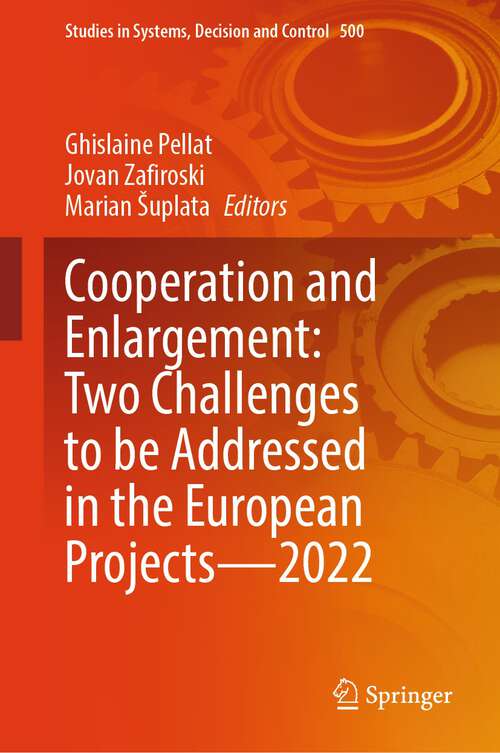Cooperation and Enlargement: Two Challenges to be Addressed in the European Projects—2022 (1st ed. 2024) (Studies in Systems, Decision and Control #500)
By: and and
Sign Up Now!
Already a Member? Log In
You must be logged into Bookshare to access this title.
Learn about membership options,
or view our freely available titles.
- Synopsis
- In this book, the ERECO-PGV[1] network wishes to make an overview of the cooperation implemented by and in the European Union and to describe the concrete forms they have taken. The issue is to analyze the internal European cooperation between economic actors, politicians, and EU citizens at different levels, but also to focus attention on the external cooperation (neighborhood policies, external policies, and collaborations with international institutions: NATO, OECD, WTO, etc.). Carrying uncompromising attention on this issue means rethinking the European project in light of today's challenges.From the very beginning, the EU was based on and called for forms of multinational cooperation, bilateral (internal and external) at different levels, involving economic actors, public actors, local authorities, and civil society. The frameworks for this cooperation as well as for the successive enlargements of the EU were drawn up in the context of European negotiations, in particular during discussions on the European Treaties. European values, standards, and rules are embodied in the texts of agreements, resolutions, and European directives and Treaties signed by all member countries. They establish the functioning of European institutions and the framework of democratic life in Europe.The emergence of current crises (Brexit, COVID-19, migration crisis, non-respect of rule of law rules, refusal of certain member countries to apply the European Charter of Human Rights, etc.) is questioning the project of the European Union and introduced the challenges which should be overcome by the proposal of the new project able to face the internal complexity of the Union and to answer to the pressure of a conflicting international context. What remains of the European ideal affirmed in the treaties of 1957, 1992, and 2007? How to "re-enchant" the common project? Yet, the European Union remains attractive to new candidate countries. How do they read the integration conditions into the EU with regard to their own projects?
- Copyright:
- 2024
Book Details
- Book Quality:
- Publisher Quality
- ISBN-13:
- 9783031422539
- Related ISBNs:
- 9783031422522
- Publisher:
- Springer Nature Switzerland
- Date of Addition:
- 12/12/23
- Copyrighted By:
- The Editor
- Adult content:
- No
- Language:
- English
- Has Image Descriptions:
- No
- Categories:
- Nonfiction, Business and Finance, Technology
- Submitted By:
- Bookshare Staff
- Usage Restrictions:
- This is a copyrighted book.
- Edited by:
- Ghislaine Pellat
- Edited by:
- Jovan Zafiroski
- Edited by:
- Marian Šuplata
Reviews
Other Books
- by Ghislaine Pellat
- by Jovan Zafiroski
- by Marian Šuplata
- in Nonfiction
- in Business and Finance
- in Technology
